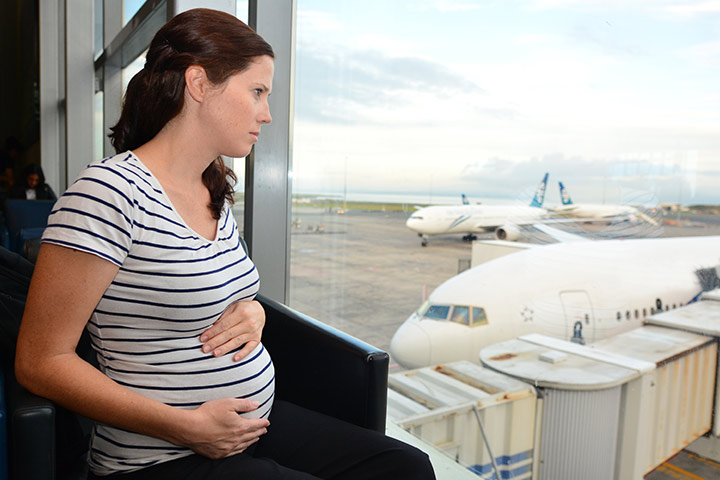Suppose you planned to TRAVEL BY PLANE and have already bought a ticket but found out that you’re PREGNANT. However, you’re not certain whether it would be a good idea to go ahead with your planned trip.
Your common sense general knowledge tells you that there is a time during your pregnancy when you should not travel by plane. But is this worrying thought always justifiable? Is it really that unsafe to fly? In fact, when exactly should you avoid reaching a certain destination by plane?
Generally speaking, all pregnancies go on for 9 months or, to say it differently, for 40 weeks. Furthermore, The American College of Obstetricians and Gynecologists let us know that the best time to travel is probably in the middle of your pregnancy, that is between 14 and 24 weeks. This ASSUMPTION is explained by the fact that most of the PREGNANCY EMERGENCIES happen during the first as well as the third trimesters.
Prior to 14 weeks there is an INCREASED RISK of miscarriage or ectopic pregnancy. These unfortunate events may not necessarily happen because you fly a plane but you’ll have less changes of being given medical help in case they do happen. On the other hand, you’ll find it more difficult to move around or even to sit for a long time after 24 weeks. What is more, there is an increased risk of premature labor or high blood pressure during the third trimester.
In so far as airline policies are concerned, they do have certain RESTRICTIONS for traveling during pregnancy. For example, Delta Airlines does not impose restrictions on flying for pregnant women. You are therefore not required to have a medical certificate to travel. Nevertheless, you should take into account that ticket change fees and penalties cannot be waived for pregnancy. Besides, if you’re traveling after your eighth month, it’s a good idea to check with your doctor.
However, if you’re flying after 28 weeks, most of the airlines will ask you to have a WRITTEN LETTER from your doctor or midwife saying that your pregnancy is not involving medical complications alongside with your approximate due date. Moreover, your doctor should state that your state of health does not pose any risks when flying. For instance, United Airlines asks passengers traveling in their ninth month of pregnancy to have an obstetrician’s certificate dated within 24 to 72 hours before their plane is scheduled to take off. The certificate should state that the passenger has been examined by an OB, is physically fit to travel by air, both the take off and landing destinations and dates as well as the estimated birth date of the baby.
Overall, airlines will permit you to fly up to 36 weeks for DOMESTIC FLIGHTS and up to 32 weeks for INTERNATIONAL FLIGHTS. So, the cutoff point for international flights is somewhat earlier. For instance, American Airlines states that for international travel or any flights over the water, travel is not advised within four weeks of the delivery date, unless you are examined by an obstetrician within 48 hours of departure. If you need to fly within 10 days of the due date, you’ll need to have clearance from their Special Assistance Coordinators.
In addition, there is a large number of pregnant women who fear that the cabin pressure existing in the plane may harm the baby. AIR PRESSURE is, as a general rule, less than at lower altitudes, so it will increase your heart rate and blood pressure, as your body will need more oxygen. In any case, if you are in the pink, neither you nor your baby should not have any problems. However, if you suffer from high blood pressure, diabetes or toxemia or if you are pregnant with twins, you may reconsider flying.
All in all, there are a few step which you may take into account when traveling by plane. You should first consider booking an ISLE SEAT so that you may get up and stretch your legs with ease. You should then AVOID gas-producing foods or even sparkling drinks before you depart. Wearing a seat-belt is a must. You just need to belt it low on the hipbones, just bellow your belly. Finally, if you think that flying will make you feel sick, you may ask your doctor to prescribe anti-nausea medication.

 En
En Es
Es Fr
Fr